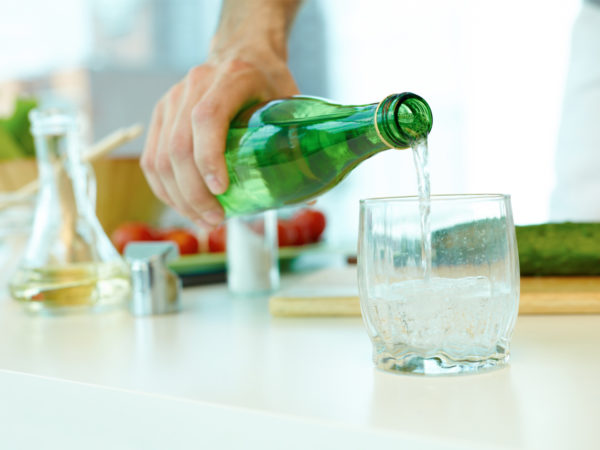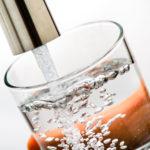Mineral Water For Calcium
Can drinking mineral water give you enough of the calcium you need daily? Do you recommend it?
Andrew Weil, M.D. | September 25, 2017

Mineral water can provide you with calcium, but the amount you get depends on how much is in it and how much you drink. The latest word on this subject comes from a study performed at Leibniz University Hannover in Germany. Researchers there compared how well calcium was absorbed from three different brands of mineral water compared to milk and to a calcium supplement. The subjects were 21 healthy men and women. Results showed that there was no significant difference in how well calcium was absorbed from the five sources, each of which provided 300 mg of calcium.
The advantage to getting calcium from mineral water rather than from milk and other dairy products is that mineral water is noncaloric. And, as the researchers pointed out, many people avoid milk because they are lactose intolerant or just don’t like it. However, the study found that to get the 1000 mg of calcium daily that Germany recommends for adults you would have to consume two liters (eight cups) of mineral water that had 500 mg of calcium per liter.
In the U.S., the recommended amount of calcium for adults is 1300 mg per day, so if you wanted to get all of it from mineral water, you would likely have to drink even more. The German researchers noted that the calcium content of some mineral water can be as high as 500 mg per liter, depending on the source. Also, the bioavailability of calcium from mineral water may be better than it is from milk.
Most mineral waters list their content of calcium (and other minerals) on the label so if you want to go this route, look for brands with 500 mg per liter. (Two glasses of milk will give you 1000-1200 mg of calcium.) Of course, you can get calcium from many food sources other than dairy products, including greens (collards, mustard, kale, and bok choy); canned salmon and sardines (with bones); tofu that has been coagulated with a calcium compound; calcium-fortified soy milk, fruit juice and cereals; blackstrap molasses; and broccoli.
Mineral water is a pleasant drink, and some evidence suggests it is beneficial to health. My only reservation about relying on it to boost your calcium intake is that some brands are high in sodium and should be avoided by people with high blood pressure.
The German study was funded by the Association of German Mineral Water Bottlers.
Andrew Weil, M.D.
Source:
Theresa Greupner et al, “Calcium Bioavailability from Mineral Waters with Different Mineralization in Comparison to Milk and a Supplement.” Journal of the American College of Nutrition, June 19 2017, dx.doi.org/10.1080/07315724.2017.1299651











